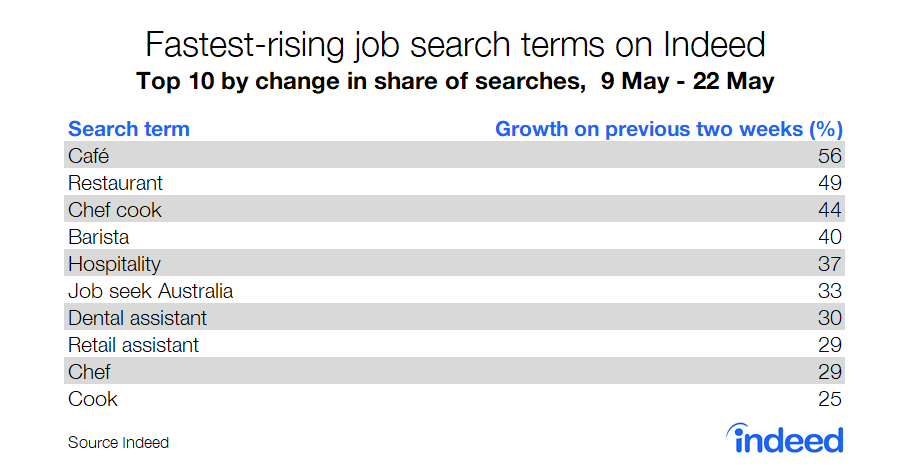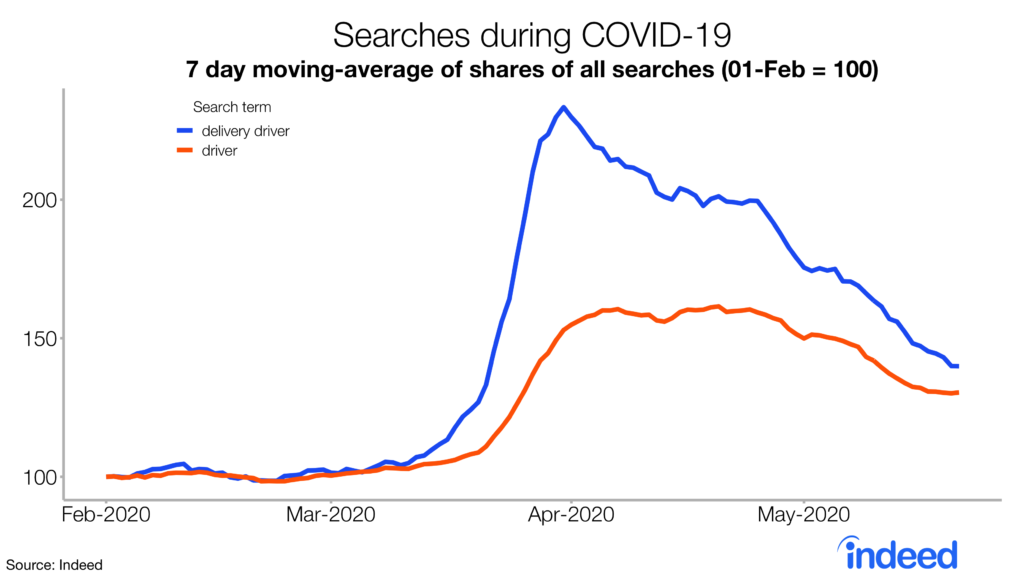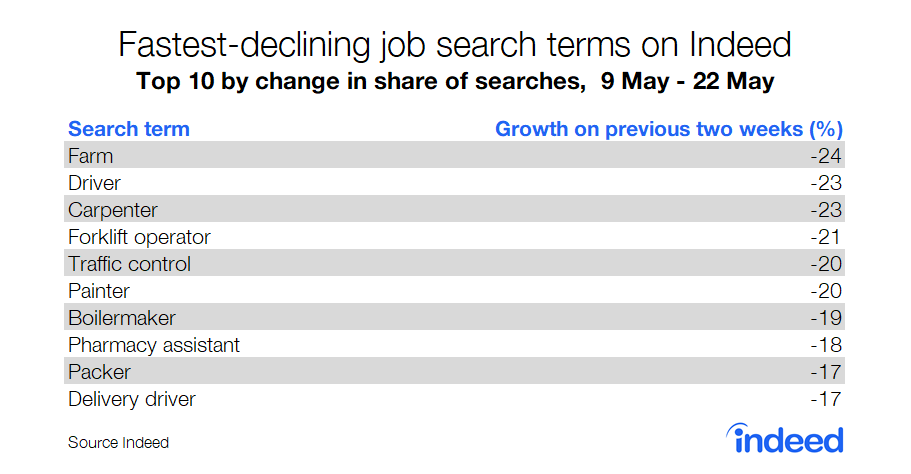Key points:
- Job seekers are searching more for jobs in hospitality and retail as the Australian economy opens up.
- Jobs that were attractive during the COVID-19 crisis, such as driver or delivery driver, are now receiving less interest from job seekers.
- Australian search activity will continue to evolve as the Australian economy opens up, reflecting both new opportunities and changes to government policy.
When the COVID-19 crisis shutdown the Australian economy, particularly sectors such as hospitality and retail, job seekers had little choice but to change their search behaviour accordingly.
Early in the crisis, job seekers reacted swiftly to new hiring announcements. Australia’s supermarket sector, led by Coles and Woolworths, was one of the chief beneficiaries. At its peak, more than 10% of all searches on Indeed AU were directed at Australian supermarkets, around seven-times higher than normal.
More recently, job seekers are reacting to the opening up of the Australian economy. Job seekers are searching less for roles such as ‘driver’ or ‘delivery driver’, two roles that flourished throughout the crisis, and searching more for new opportunities in hospitality and retail.
Australia’s fastest growing search terms
Australia’s fastest growing search terms paint a very clear picture of an economy that is emerging from lockdown. The list is dominated by searches for hospitality and to a lesser extent retail.
In the week ended 22 May, searches for cafe and restaurant were up 56% and 49%, respectively, compared with two weeks earlier. Rapid search growth is also apparent for terms such as chef, cook, barista and hospitality.
With dentists recently re-opening, aspiring dental assistants are also on the lookout for new opportunities.

While job seekers are certainly more interested in hospitality and retail, their search share is still somewhat below pre-crisis levels. That reflects a number of factors, including a limited number of new job postings in those areas, along with staggered re-openings across the country. As important though has been the relaxation of mutual obligations, a policy that normally forces people receiving unemployment benefits to search for and apply for jobs each month. These obligations were relaxed early in the COVID-19 crisis and are scheduled to be reinstated on 1 June.
Australia’s fastest declining search terms
The search terms that are suddenly out of favour also paint an interesting picture.
Job seekers are searching less for roles such as driver or delivery driver. These roles were important throughout the crisis, helping connect businesses with their customers. Delivery driver, which requires little-to-no training, was particularly attractive to Australians who had lost their jobs or been stood down temporarily. Even with the current decline, searches for driver or delivery driver is still well above pre-crisis levels.

The search share for terms such as farm, forklift operator and packer are all well down compared with two weeks ago. These changes could also be related to Australia’s changing economic environment. Roles on farms or in factories are suddenly less attractive in an economy that is creating a wider variety of new opportunities.

Australian search activity will continue to evolve in the coming weeks, alongside further relaxation of economic restrictions. Search patterns indicate quite clearly that job seekers are following the news cycle closely, acutely aware of what sectors are opening up and when, and that is influencing their search behaviour. Changes to government policy, including the re-introduction of mutual obligations on 1 June, will also shift search patterns.
Methodology
For this analysis, we looked at the top search terms on Indeed AU as a share of all searches from 9 May to 22 May. We examined both the change in searches versus the previous two weeks and the change versus the same period one year ago to account for possible seasonality of search patterns. We accounted for daily volatility in search behaviour by calculating the 7-day moving average of each term’s search share.






